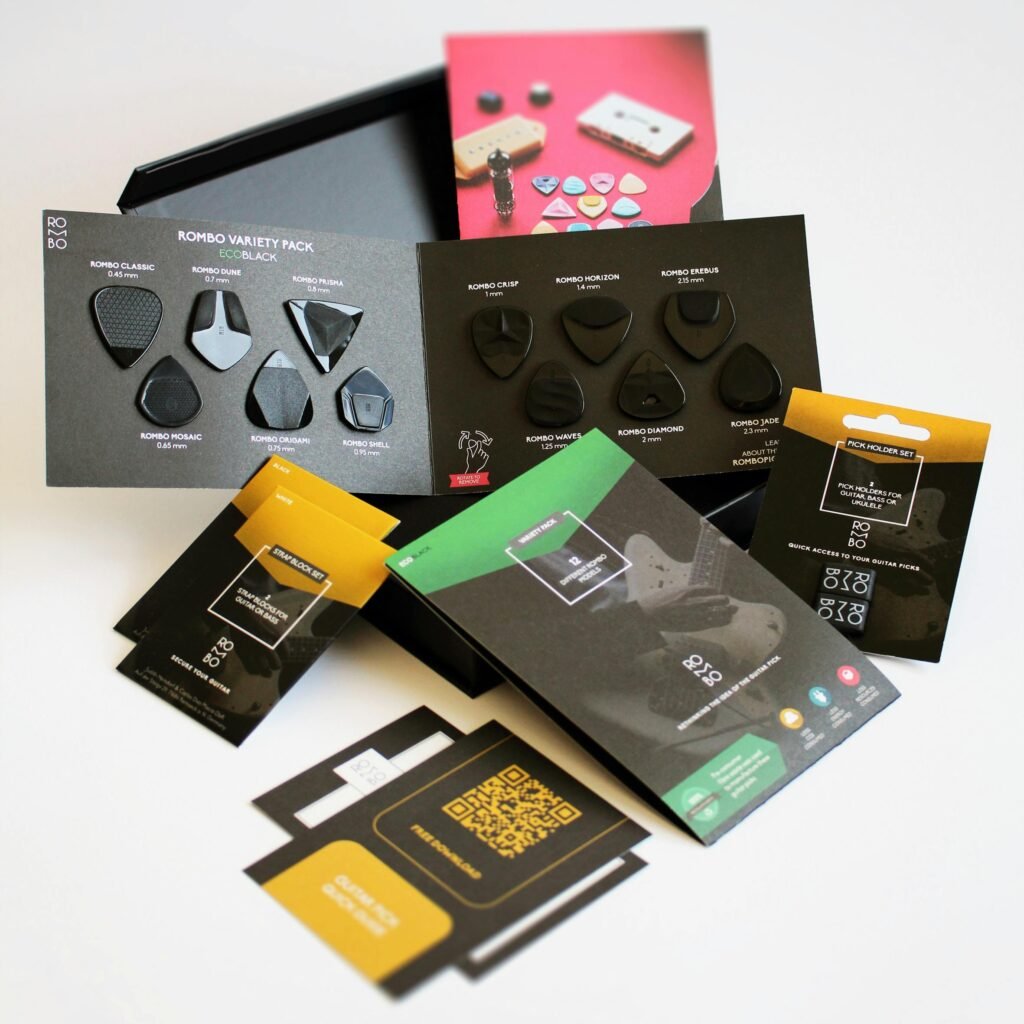The Ultimate Guide to Stress Reduction Techniques
Are you feeling overwhelmed and in need of some relief from the daily grind? Look no further! In “The Ultimate Guide to Stress Reduction Techniques,” we will explore a variety of methods to help you find peace and tranquility amidst the chaos of life. From simple breathing exercises and mindfulness techniques to more advanced practices like yoga and meditation, this comprehensive guide will empower you with the knowledge and tools to effectively manage and reduce stress. Say goodbye to stress and hello to a calmer, more balanced you!

This image is property of images.pexels.com.
Exercise
Exercise is a powerful tool in reducing stress and improving overall well-being. When you engage in physical activity, it releases endorphins, which are known as the “feel-good” hormones. There are various types of exercises that you can incorporate into your routine to combat stress effectively.
Aerobic Exercises
Aerobic exercises, such as jogging, brisk walking, cycling, or swimming, are great for reducing stress. These activities increase your heart rate and boost circulation, leading to the release of endorphins. They also help to clear your mind and provide a sense of achievement and accomplishment. Adding aerobic exercises to your routine can significantly improve your mood and reduce stress levels.
Strength Training
Strength training not only helps you build strong muscles but also plays a vital role in stress reduction. When you engage in activities like weightlifting or using resistance bands, your body releases endorphins, which act as natural painkillers and mood enhancers. Additionally, strength training can improve your self-confidence and self-esteem, both of which can help you better manage stress.
Yoga and Pilates
Yoga and Pilates are fantastic stress reduction techniques that focus on both the mind and body. These practices involve controlled movements, breathing exercises, and mindfulness. The combination of gentle stretching, deep breathing, and meditation helps calm your mind, relax your muscles, and reduce stress levels. Incorporating yoga or Pilates into your routine can provide a sense of balance and promote overall well-being.
Tai Chi
Originating from ancient Chinese martial arts, Tai Chi is a mind-body practice that combines slow, flowing movements with deep breathing and mindfulness. It is known for its stress-reducing benefits and can help improve flexibility, balance, and mental clarity. Practicing Tai Chi can promote a sense of calmness, reduce anxiety, and enhance relaxation.
Meditation and Mindfulness
Meditation and mindfulness techniques are powerful tools for stress reduction. They involve redirecting your focus and attention to the present moment, allowing you to let go of worries and mental clutter.
Deep Breathing Exercises
Deep breathing exercises are a simple yet effective way to promote relaxation and reduce stress. By focusing on your breath and taking slow, deep inhalations and exhalations, you engage your body’s natural relaxation response. Deep breathing exercises can be done anywhere, anytime, and they help to calm your mind and bring a sense of tranquility.
Guided Imagery
Guided imagery is a technique that uses visualization to calm the mind and reduce stress. By creating vivid mental images of peaceful and calming scenes, you engage your senses and transport yourself to a relaxing environment. Guided imagery can be done through meditation apps or with the help of a trained professional. It allows you to escape the pressures of daily life and find inner peace.
Body Scan Meditation
Body scan meditation involves systematically focusing on different parts of your body, bringing awareness and relaxation to each area. This technique helps you tune in to your body’s sensations, release tension, and reduce stress. By mentally scanning your body from head to toe, you become more in tune with yourself and develop a deeper connection with your physical and mental well-being.
Mindful Walking
Mindful walking is a form of meditation that involves being fully present and aware of your surroundings while walking. Instead of rushing from one place to another, mindful walking encourages you to slow down and appreciate each step and breath. This technique allows you to engage your senses, connect with nature, and experience a sense of calmness and serenity.

This image is property of images.pexels.com.
Stress-Relief Techniques
In addition to exercise and meditation, there are various stress-relief techniques that you can incorporate into your daily routine to better manage stress.
Progressive Muscle Relaxation
Progressive muscle relaxation is a technique that involves tensing and relaxing different muscle groups in your body. By deliberately tensing and then releasing each muscle group, you can release built-up tension and promote relaxation. This practice helps you become more aware of the sensations in your body and teaches you how to let go of muscle tension caused by stress.
Autogenic Training
Autogenic training is a relaxation technique that involves repeating a series of self-suggestions to induce a state of deep relaxation. By using phrases such as “my arms are heavy and warm,” you can trigger a relaxation response in your body. This technique helps promote a sense of calmness and reduce stress.
Biofeedback
Biofeedback is a technique that allows you to become more aware of your body’s physiological responses to stress. Using electronic sensors, biofeedback devices provide real-time feedback on your heart rate, muscle tension, and other bodily functions. This information helps you gain control over your body’s stress responses and learn techniques to promote relaxation.
Art Therapy
Art therapy is a creative and expressive method of stress reduction. Engaging in artistic activities such as painting, drawing, or crafting allows you to channel your emotions and focus on the present moment. Art therapy provides an outlet for self-expression and can be a therapeutic way to reduce stress and improve overall well-being.
Healthy Lifestyle Practices
Maintaining a healthy lifestyle is essential for stress reduction. Making positive changes in your daily habits can significantly impact your stress levels and overall well-being.
Proper Nutrition
Proper nutrition plays a crucial role in stress reduction. Eating a balanced diet rich in fruits, vegetables, whole grains, and lean proteins provides your body with essential nutrients to function optimally. Avoiding excessive caffeine, sugar, and processed foods can help stabilize your mood and reduce stress.
Adequate Sleep
Adequate sleep is vital for your physical and mental health. Lack of sleep can increase stress levels and make it harder to cope with daily challenges. Establishing a regular sleep schedule, creating a calming bedtime routine, and ensuring a comfortable sleep environment are key to getting quality rest and reducing stress.
Avoiding Substance Abuse
Using substances such as alcohol, tobacco, or drugs as a coping mechanism can exacerbate stress and lead to long-term health issues. Avoiding substance abuse and finding healthier ways to manage stress is crucial for maintaining your well-being. If you’re struggling with addiction, seeking professional help and support is recommended.
Managing Time and Priorities
Proper time management and setting realistic priorities can help reduce stress caused by overwhelming tasks and responsibilities. Implementing techniques such as creating to-do lists, breaking tasks into smaller steps, and delegating when possible can help you stay organized and focused. By managing your time effectively, you can alleviate stress and create a better balance in your life.

This image is property of images.pexels.com.
Social Support and Connection
Building and maintaining social connections is an important aspect of stress reduction. Having a support system and engaging in positive relationships can provide emotional support and help you better manage stress.
Seeking Emotional Support
During times of stress, seeking emotional support from friends, family, or a therapist can be extremely beneficial. Talking about your feelings and concerns with someone you trust can provide comfort, validation, and perspective. Supportive relationships can help you feel understood, relieve stress, and promote overall well-being.
Joining Support Groups
Joining support groups can connect you with others who are experiencing similar challenges. Whether it be a group focused on stress reduction techniques, a hobby, or a specific life circumstance, support groups provide a safe space to share experiences, gain insights, and receive support. Participating in support groups can help you feel less alone and provide a sense of belonging.
Building Positive Relationships
Building and nurturing positive relationships with others is essential for stress reduction. Surrounding yourself with supportive, uplifting people can help you better cope with stress. Taking time to connect with friends, family, and loved ones can provide a sense of connection and belonging, boosting your overall well-being.
Engaging in Community Activities
Engaging in community activities can help foster a sense of belonging and provide opportunities for social interaction. Volunteering, joining clubs or organizations, or participating in local events can connect you with like-minded individuals and promote a sense of purpose. Contributing to your community can give you a sense of accomplishment and fulfillment, reducing stress in the process.
Stress Management Techniques
In addition to the aforementioned techniques, there are several other effective methods for managing and reducing stress.
Journaling
Journaling is a simple yet powerful technique for managing stress. Putting your thoughts and feelings on paper can provide clarity, release emotional tension, and help you gain perspective. Whether you prefer writing long-form entries or using bullet points, journaling can be a therapeutic practice that promotes self-reflection and reduces stress.
Music Therapy
Listening to music can have a profound impact on your emotions and stress levels. Upbeat and energetic music can boost your mood, while calming and soothing melodies can help you relax. Experiment with different genres and find the music that resonates with you. Incorporating music into your daily routine can be a simple and enjoyable stress reduction technique.
Humor and Laughter
They say laughter is the best medicine, and it’s true when it comes to stress reduction. Finding moments of humor in your daily life can help shift your perspective and release tension. Whether it’s watching a funny movie, spending time with playful pets, or sharing jokes with friends, laughter has a powerful effect on your mood and overall well-being.
Massage and Aromatherapy
Massage therapy and aromatherapy are both effective ways to promote relaxation and reduce stress. Massage helps relieve muscle tension, improve circulation, and release endorphins. Aromatherapy involves using essential oils to stimulate your senses and promote relaxation. Incorporating these practices into your self-care routine can provide a soothing and calming experience.
Cognitive-Behavioral Strategies
Cognitive-behavioral strategies focus on identifying and changing negative thought patterns and behaviors that contribute to stress.
Identifying Stressful Thoughts
The first step in cognitive-behavioral strategies is to become aware of your stressful thoughts. Pay attention to your inner dialogue and identify any patterns of negative thinking or self-criticism. By recognizing these thoughts, you can begin to challenge and change them.
Reframing Negative Thinking
Once you’ve identified negative thoughts, practice reframing them into more positive or realistic perspectives. Instead of catastrophizing or assuming the worst, challenge these negative thoughts with evidence or more balanced viewpoints. Reframing negative thinking can help you cultivate a more optimistic and resilient mindset.
Practicing Gratitude
Practicing gratitude involves consciously focusing on the positive aspects of your life and expressing gratitude for them. This simple yet powerful technique can shift your mindset and reduce stress. Take time each day to reflect on what you are grateful for, whether it’s big or small. By cultivating a sense of gratitude, you can enhance your overall well-being and resilience to stress.
Setting Realistic Expectations
Many stressors arise from setting unrealistic expectations for yourself or others. Practice setting realistic goals and expectations that are achievable and within your control. By setting realistic expectations, you can reduce unnecessary pressure and stress in your life. Remember, it’s okay to ask for help and prioritize self-care instead of trying to do everything on your own.
Self-Care Practices
Engaging in self-care practices is crucial for stress reduction and overall well-being. Taking care of yourself is not selfish but necessary for maintaining balance and resilience.
Taking Breaks and Time Off
In our fast-paced world, it’s essential to take regular breaks and time off to recharge and rejuvenate. Whether it’s a short walk outside, a cup of tea, or a vacation, allowing yourself time to rest and relax can help prevent burnout and reduce stress. Prioritize self-care and make time for activities that bring you joy and relaxation.
Engaging in Hobbies and Interests
Engaging in hobbies and interests outside of work or daily responsibilities is an excellent way to reduce stress. Pursuing activities that you enjoy and are passionate about can provide a sense of fulfillment and promote relaxation. Whether it’s reading, painting, playing an instrument, or gardening, find activities that bring you joy and make time for them regularly.
Setting Boundaries
Setting healthy boundaries is crucial for managing stress and maintaining your well-being. Learn to say no to requests or responsibilities that overwhelm you or don’t align with your priorities. Communicate your limits and needs clearly to others. By setting boundaries, you protect your time, energy, and mental well-being.
Pampering Yourself
Treating yourself to self-care rituals and pampering sessions can have a significant impact on stress reduction. Whether it’s taking a long bath, getting a massage, or indulging in a favorite hobby, prioritize activities that make you feel pampered and nurtured. Taking time to care for yourself not only reduces stress but also boosts self-esteem and self-confidence.
Relaxation Techniques
Relaxation techniques are invaluable tools for managing stress and promoting a sense of calmness and inner peace.
Progressive Muscle Relaxation
Progressive muscle relaxation, mentioned earlier as a stress-relief technique, can also be utilized as a relaxation technique. By systematically tensing and relaxing different muscle groups, you release built-up tension and promote a relaxed state. Incorporating progressive muscle relaxation into your routine can help you unwind and let go of stress.
Breathing Exercises
Breathing exercises, such as deep diaphragmatic breathing or box breathing, can activate your body’s relaxation response. By focusing on slow, deep breaths, you can calm your nervous system and reduce stress. Breathing exercises can be practiced anywhere, anytime, and are particularly helpful during moments of heightened stress.
Visualization
Visualization involves using your imagination to create a mental image that promotes relaxation and peace. Close your eyes and visualize yourself in a serene and calming place, such as a beach or a peaceful garden. Engage your senses and immerse yourself in this mental image, allowing yourself to experience the relaxation and tranquility it brings.
Hot Baths or Showers
Hot baths or showers can be incredibly soothing and relaxing. The warm water helps to relieve muscle tension and promotes relaxation. Add some calming essential oils or bath salts to enhance the experience. Taking time for a hot bath or shower can be a simple yet effective way to unwind and melt away stress.
Technology-Assisted Stress Reduction
In today’s digital age, technology can also assist in stress reduction. Several apps and devices are designed specifically to help manage stress and promote overall well-being.
Meditation Apps
Meditation apps, such as Calm or Headspace, provide guided meditations, breathing exercises, and relaxation techniques at your fingertips. These apps offer a variety of programs tailored to different needs and levels of experience. Incorporating meditation apps into your daily routine can help you develop a regular mindfulness practice and reduce stress.
Stress-Tracking Apps
Stress-tracking apps, such as Daylio or Moodpath, allow you to monitor and identify patterns in your stress levels. These apps often include features such as mood tracking, journaling, and reminders for self-care activities. By tracking your stress levels, you can gain valuable insights into your triggers and make informed decisions about stress reduction techniques that work best for you.
Virtual Reality Relaxation
Virtual reality (VR) relaxation offers an immersive and interactive experience for stress reduction. Using specialized VR headsets, you can transport yourself to serene environments and engage with calming visuals and sounds. VR technology provides a unique way to escape stressors and unwind in a virtual world designed for relaxation and well-being.
Biofeedback Devices
Biofeedback devices, such as heart rate monitors or stress monitoring bracelets, help you gain awareness of your body’s stress responses. These devices provide real-time feedback on metrics such as heart rate, breathing rate, or skin conductance. By monitoring these bodily functions, you can learn to recognize and regulate your stress responses effectively.
In conclusion, stress reduction techniques encompass a wide range of strategies that address the physical, mental, and emotional aspects of stress. By incorporating exercise, meditation and mindfulness, stress-relief techniques, healthy lifestyle practices, social support, stress management techniques, cognitive-behavioral strategies, self-care practices, relaxation techniques, and technology-assisted solutions into your daily routine, you can effectively reduce stress and promote overall well-being. Experiment with different techniques, listen to your body and mind, and find a combination that works best for you. Remember, managing stress is a lifelong journey, and it’s essential to prioritize self-care and stress reduction in order to lead a balanced and fulfilling life.



